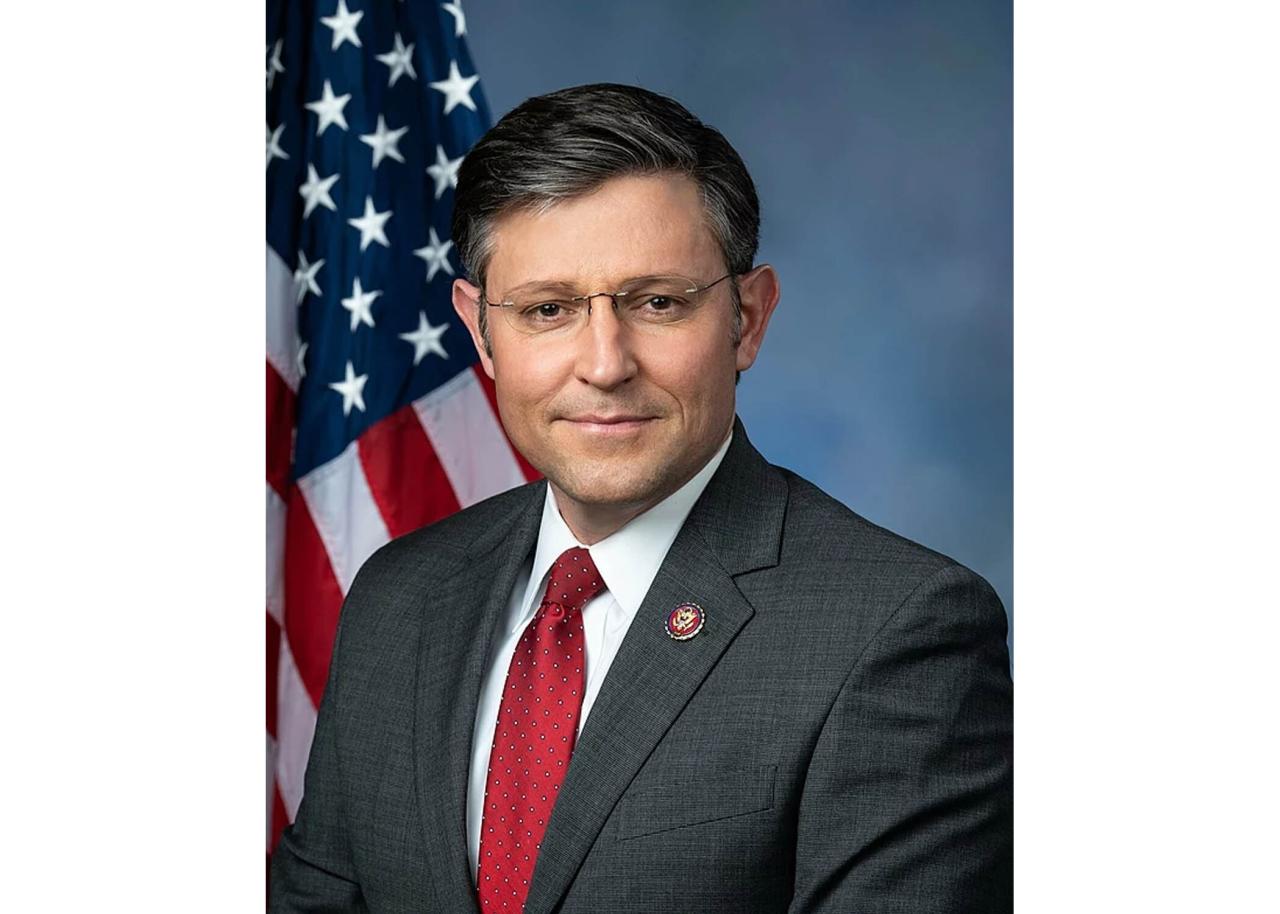Republican Mike Johnson reelected House speaker after dramatic floor battles, marking a significant victory within the Republican party. This closely contested election highlighted deep divisions within the GOP, showcasing the intense negotiations and power struggles that preceded Johnson’s ascension. The multiple ballots and unexpected turns underscored the challenges facing the party as it navigates its legislative agenda. We’ll delve into the process, Johnson’s platform, and the implications for the House.
So, Republican Mike Johnson was just reelected House Speaker after a pretty wild vote. It’s been a chaotic few days, and honestly, the news cycle’s been a bit of a whirlwind. For example, completely unrelated, but check out this story: British victim of New Orleans attack is stepson of William and Harry’s. Crazy, right?
Anyway, back to Johnson – his reelection definitely makes things interesting for the coming months.
This article will explore the key events, from the initial candidate announcements and the various factions vying for control to the final vote count. We’ll examine Johnson’s political ideology and how it aligns with the current Republican party platform, analyzing the support he garnered and the opposition he faced. Furthermore, we’ll consider the broader implications of this election for the House of Representatives and its legislative priorities.
The Republican House Speakership Election: Mike Johnson’s Ascent: Republican Mike Johnson Reelected House Speaker After Dramatic
The election of Mike Johnson as House Speaker marked a significant moment in American politics, unfolding amidst considerable drama and internal Republican Party divisions. This article details the process, Johnson’s ideology, the election’s contentious aspects, its implications for the House, public reaction, and a comparison with previous Speakers.
The House Speaker Election Process
The House Speaker election involves a series of ballots where Representatives cast votes for their preferred candidate. A majority vote (more than half of the total voting members) is required to win. Multiple ballots become necessary if no candidate secures a majority on the initial ballot. This process highlights the power dynamics within the House and the ability of smaller factions to influence the outcome.
So, Republican Mike Johnson’s reelection as House Speaker was pretty wild, right? It makes you think about global power dynamics – and how things are made. Check out this interesting article on how China is the manufacturing superpower | Hacker News , which impacts everything from the economy to political leverage. Understanding that manufacturing landscape is key to grasping the complexities of situations like Johnson’s dramatic speaker race.
Key players include the candidates themselves, party leaders who attempt to rally support, and individual Representatives who may hold significant sway. This election saw a more protracted process than many recent ones, with several rounds of voting before a clear winner emerged, unlike the smoother transitions seen in some previous elections where the outcome was predicted more easily.
Mike Johnson’s Political Ideology and Platform
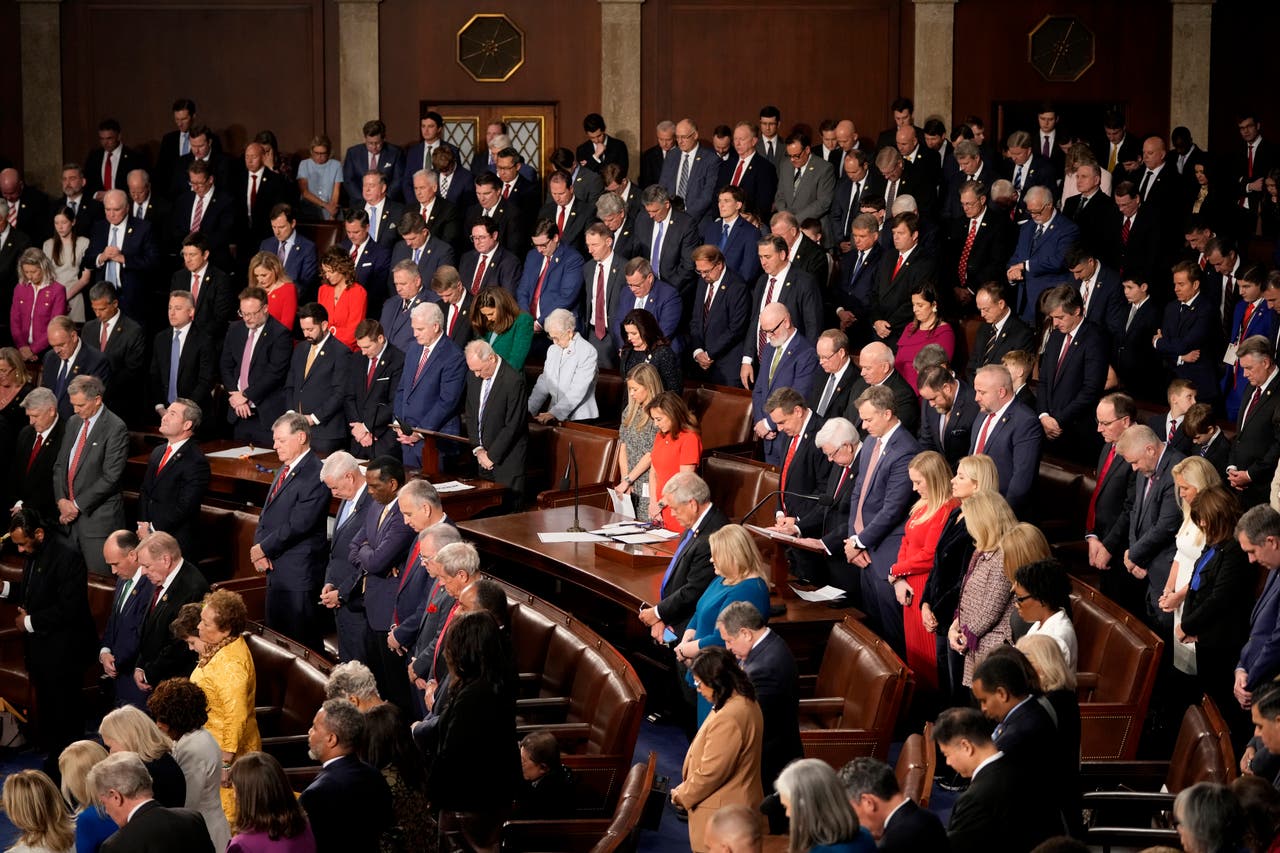
Mike Johnson is a staunch conservative Republican whose policy positions align closely with the party’s platform. He is known for his socially conservative views and his commitment to fiscal conservatism. His election reflects the influence of the more conservative wing of the Republican Party, which played a significant role in shaping the outcome of the Speaker’s race. While he enjoys support from various factions within the party, he also faced opposition from more moderate Republicans who sought a less confrontational approach to governing.
The election ultimately demonstrated the power of the conservative base within the current Republican Party.
The Dramatic Aspects of the Election
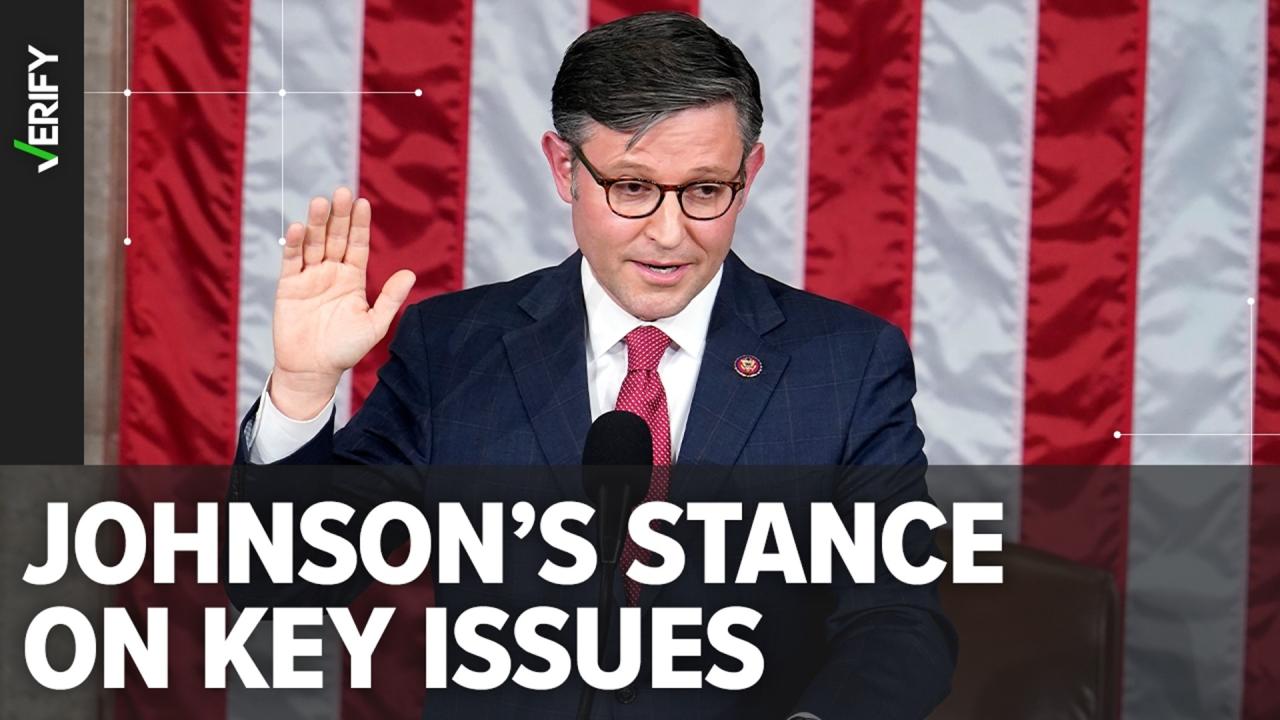
The election was marked by several key events that contributed to its dramatic nature. A chronological timeline would highlight the initial deadlock, the subsequent rounds of voting, the behind-the-scenes negotiations, and the eventual shift in alliances that led to Johnson’s victory. Specific incidents, such as failed attempts at compromise and dramatic floor speeches, added to the tension.
| Candidate | Platform Highlights | Initial Support Level (Estimate) | Outcome |
|---|---|---|---|
| Mike Johnson | Strong conservative platform, focus on fiscal responsibility and social issues. | Significant, but not initially a majority. | Elected Speaker |
| [Candidate 2 Name] | [Candidate 2 Platform Summary] | [Estimate of Initial Support] | [Outcome of Candidacy] |
| [Candidate 3 Name] | [Candidate 3 Platform Summary] | [Estimate of Initial Support] | [Outcome of Candidacy] |
| [Candidate 4 Name (if applicable)] | [Candidate 4 Platform Summary] | [Estimate of Initial Support] | [Outcome of Candidacy] |
Implications for the House of Representatives, Republican Mike Johnson reelected House speaker after dramatic
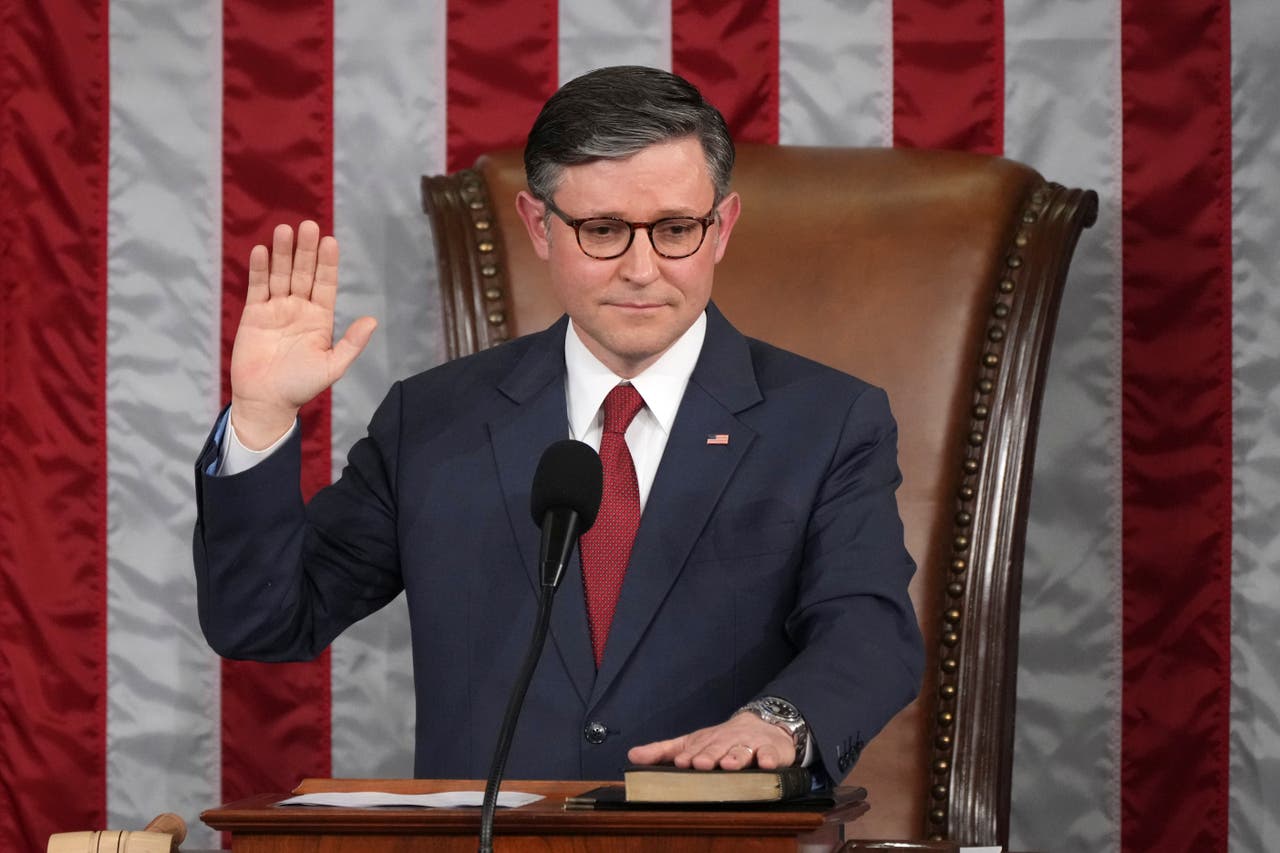
Johnson’s election will likely impact the House’s legislative agenda, shaping the types of bills considered and the pace of legislative action. His leadership style, whether collaborative or more assertive, will significantly influence the House’s overall functioning and productivity. Challenges for Johnson include navigating internal party divisions, maintaining unity within the Republican caucus, and working with the opposition party.
Opportunities include the chance to advance the Republican Party’s agenda and potentially leave a significant mark on the legislative landscape.
- Potential for increased legislative gridlock due to internal party divisions.
- Opportunity to push through a conservative legislative agenda.
- Challenge of working effectively with the Democratic-controlled Senate.
- Potential for increased efficiency if Johnson can unify the Republican caucus.
Public and Media Reaction
Public reaction to Johnson’s election was varied, with supporters praising his conservative stance and opponents expressing concerns about his policies and leadership style. Media coverage reflected this diversity of opinion, with some outlets emphasizing the drama of the election and others focusing on the policy implications of Johnson’s victory. News coverage ranged from celebratory tones in conservative media to more critical analyses in liberal outlets.
Social media showcased a spectrum of opinions, from enthusiastic endorsements to strong condemnations, often reflecting pre-existing political alignments.
Comparison with Previous Speakers
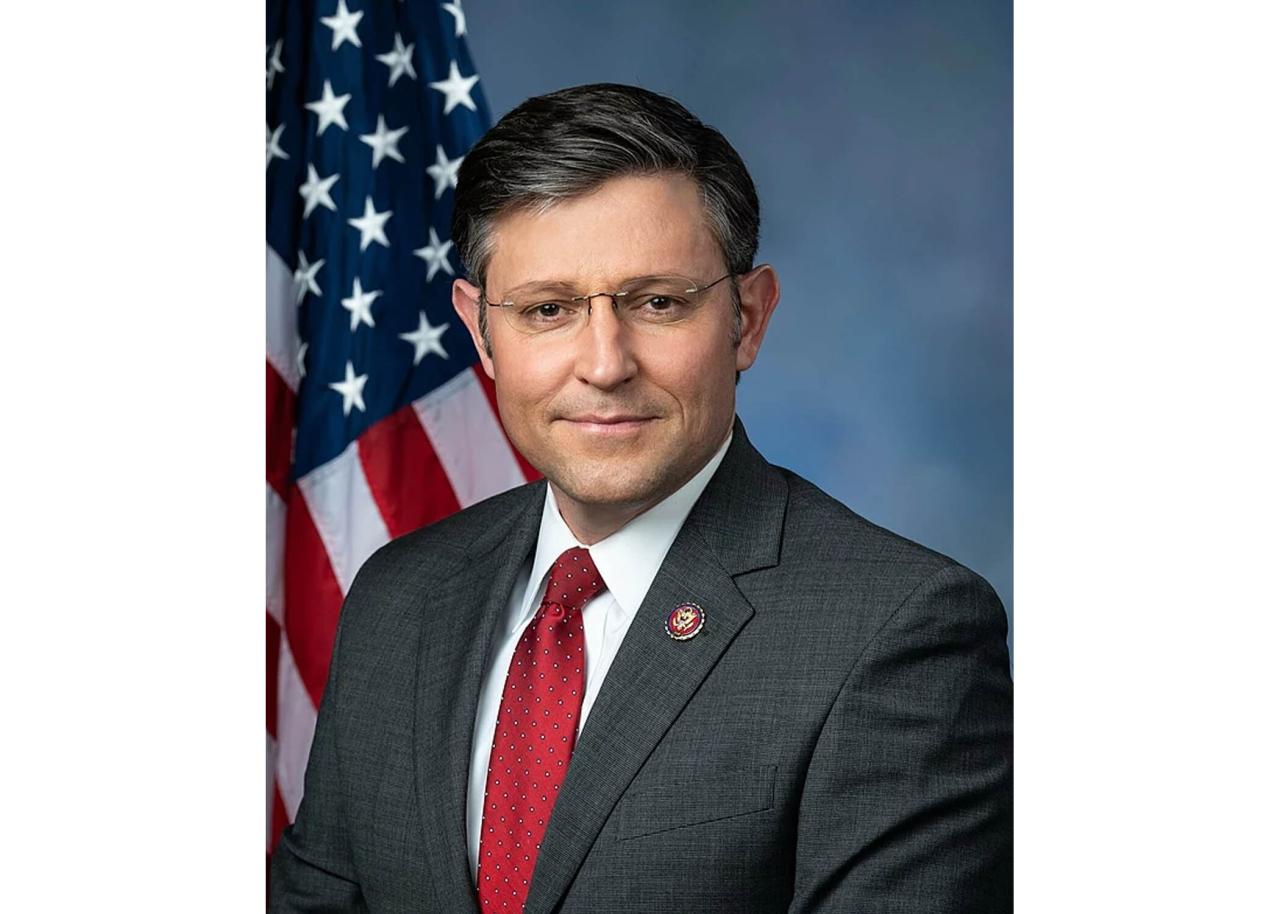
Comparing Mike Johnson to previous House Speakers reveals similarities and differences in their backgrounds, leadership styles, and approaches to governing. Some Speakers have been known for their ability to unite diverse factions within their party, while others have been more confrontational. Johnson’s election may signal a shift towards a more conservative approach to House leadership, or it may represent a continuation of existing trends depending on how his Speakership unfolds and how it compares to recent predecessors.
Final Review
The election of Mike Johnson as House Speaker, following a dramatic and multi-ballot process, reveals significant fault lines within the Republican party. While Johnson’s victory signals a path forward for the GOP’s legislative agenda, the intense internal divisions and the challenges faced during the election process suggest a period of potential political instability and ongoing internal battles. His ability to unite the party and effectively lead the House remains to be seen, and the coming months will be crucial in determining his success.
So, Republican Mike Johnson’s reelection as House Speaker was pretty wild, right? A total rollercoaster. It makes you think about dedication and focus, qualities also clearly shown by young Luke Littler, whose amazing story you can read about here: Luke Littler: the mind and the making of darts’ youngest world. It’s a fascinating contrast – political drama versus the intense concentration of a world champion.
Back to Johnson, though – his victory certainly speaks volumes about perseverance in the face of adversity.
Expert Answers
What are Mike Johnson’s key policy positions?
Johnson generally holds conservative views aligning with the Republican party platform, often emphasizing fiscal conservatism, limited government, and a strong national defense. Specific policy positions vary and should be researched from reliable sources for the most up-to-date information.
How long is a House Speaker’s term?
The term of a House Speaker is generally two years, coinciding with the term of Congress. However, the Speaker can be removed from their position through a vote of the House.
What are some potential challenges Johnson faces as Speaker?
Potential challenges include maintaining party unity given the divisions highlighted during the election, navigating a potentially divided Congress, and effectively managing the legislative agenda amidst competing priorities and differing viewpoints within his own party.
